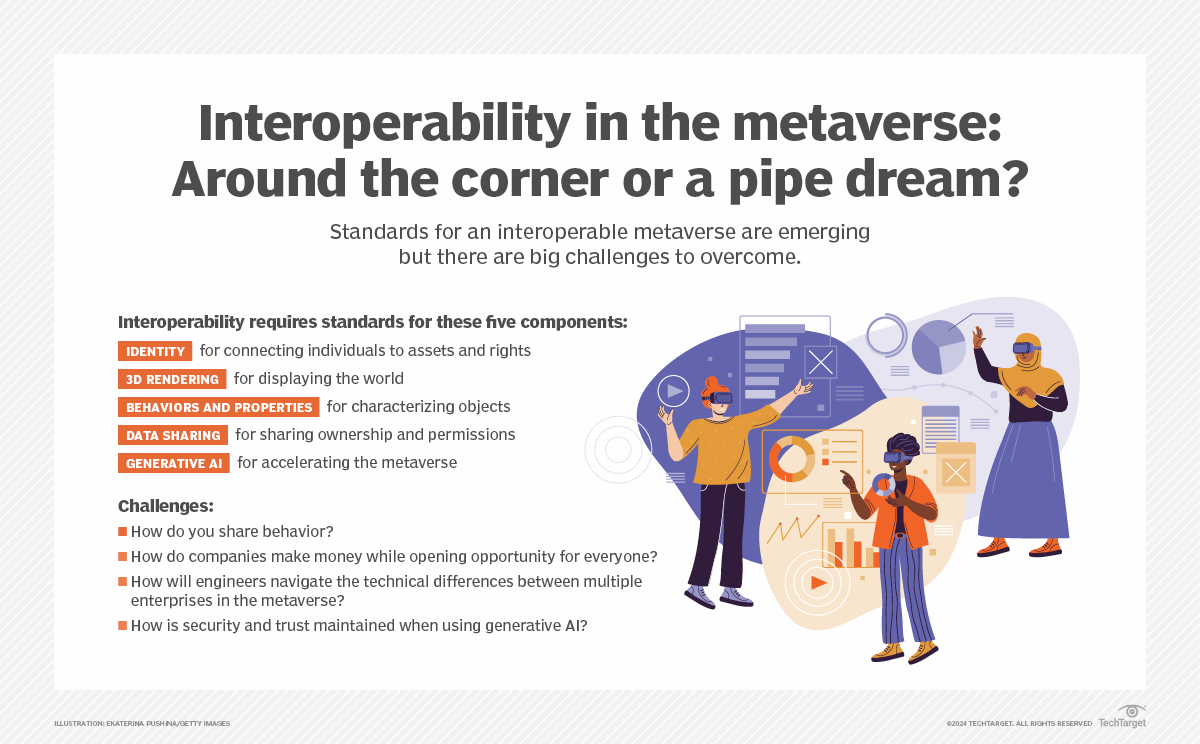
Announcements
- The workplace is still reckoning with how the pandemic changed ideas on remote work, work/life balance, productivity, and generational attitudes toward what defines a successful career. In the three-day Transforming the Future of Work Summit, leading HR visionaries and experts are joining forces to share how businesses can negotiate the lasting impacts of the changes Covid-19 wrought on the workplace, looking at the full employee experience from onboarding and recruitment to culture, engagement, and innovation.
- As businesses continue to emerge from the COVID-19 pandemic, revamp their business models, and restructure operations, a holistic approach to cybersecurity is top of mind. For many businesses, this means getting back to basics and revisiting security programs to ensure they are fundamentally based on risk and their implementation balances people, processes, and technologies. Join us for Security Strategies to Safeguard the Enterprise, a three-day summit provides expert insight for enterprises to ensure their security programs are meeting business goals and delivering the results they need.

The DSC Weekly newsletter normally covers trends or practices in the data science and AI field. Still, every couple of months, the editorial team will also write a newsletter issue such as this one specifically for writers. If you write regularly, these may contain new or changing information, while if you aren’t a writer yet, but you’d like to be, this is a good reference to check.
Mission
DSC is Data Science Central. This isn’t just a clarification of an acronym but rather a definition of where we have come from, although not necessarily where we’re going. When Tim Masterson and Vincent Granville started datasciencecentral.com ten years ago, data science was a hot area as analytics, which had long been a peripheral part of the programming landscape, began to take center stage. Many of the articles of the time were about which was more significant – R or Python – primarily based on which language had the best libraries for data scientists to use in building analytics models. Big Data (especially around Hadoop) played a huge role in this quickly evolving field.
A decade later, the landscape has changed dramatically. We don’t talk about Hadoop. The Big Data Revolution of the early 2010s has become DaaS and Data Clouds (meshes, snowflakes, and graphs). Sophisticated analytics has become standard fare for most major cloud vendors, increasingly powered by large farms of GPUs. Python “won”, but it was a pyrrhic victory in that Python has gone on to power the machine learning and natural language processing revolution of the early 2020s, when these aren’t then turned into GPU firmware libraries for everything from Go to Javascript.
Not surprisingly, DSC has changed with it. Our focus today has shifted from data tech to data strategy, although we also dig more deeply into the code than most other tech publications. At the same time (and unlike most of TechTarget), we source most of our content from our readers, providing a forum for seasoned technical professionals and up-and-coming writers to produce from fifty to one hundred articles a month across the technical and business spectrum.
To facilitate this process, we flipped the switch on a new, WordPress-based implementation nearly a year ago (and after a year of development). We had several goals in doing so, from wanting to modernize what was becoming an increasingly long-in-the-tooth graphic design, gain better control of functionality, provide more tools for writers to create everything from code blocks to tables to embedded video content, and get a better handle on our traffic. This also introduced changes in the way that we brought contributors on board.
Becoming a Contributor
One of the most significant changes (and still somewhat in flux) is the separation of contributors from subscribers. When you subscribe, you are subscribing to this newsletter (please do), but our parent company, TechTarget, maintains this data. On the other hand, the contributor list is kept internal to WordPress and gives you access to create posts and edit your own portfolio.
We are working on a form to allow people to apply as contributors, but for now, you will need to contact me at [email protected]. When you do so, please include your email (which will become your user ID), the name (personal or company) that you want to be known by), and both suggestions for articles and links to existing samples. We (the DSC editorial team) will then decide whether to make you a contributor or not and will notify you accordingly.
After getting an account, you can go to the Home menu at the top of the DSC home page, hover over the Home menu, and select Author Portal to enter new content.
Once approved, you may submit as many articles as you’d like, with the proviso the DSC Editorial team curates all content. If, for some reason (a few of which are detailed below) we decide that an article does not meet our standards, we will notify you with ways of changing it, but all editorial decisions are final.
What We’re Looking For …
DSC Weekly publishes every Tuesday afternoon. In addition to an editorial, it includes a recap of the articles published the previous week as well as an editorial calendar specifying the kind of articles that are most on our radar. Articles for these topics will get bumped up the queue, and during weeks when we get a lot of contributions, these will more likely be published. Consequently, if you want to make sure to be published, read the latest newsletters, which are also published on the DSC Site.
We love code articles, videos, and multimedia content. In the default Gutenberg editor, there is a blue + symbol that lets you bring up all kinds of different widgets and components, including support for inline HTML, code blocks, embedded video, tables, KateX (a lateX editor), and similar tools. You can add embed code using the HTML component (type /html at the start of a line in the editor) and import images via a media editor (use the /imagetag). Finally, you can use the backquote character to wrap variables, filenames, and other code identifiers.
Data strategy, news, industry examples of technology, case studies, essays about AI ethics, legislation, governance, and data trends are all considered favorably. Push the envelope – look at what’s up and coming, how the technology is being used, and what’s exciting, worrisome, or fun. The general focus of DSC is on cognitive computing, which covers a broad expanse. If you’re struggling with ideas, read what’s already up and write better.
And What We’re Not
Articles submitted to DSC should be grammatically clean and well-written. We use Grammarly to do a lot of our basic editing and spell-checking. It’s free, and if you’re a writer, you should use it or something similar before submitting articles for review (marked as pending). DSC uses American English spelling and grammar so if you’re writing for publication with writing that uses British conventions, you should keep this in mind as well. The article will be rejected if we have to spend more than twenty minutes editing it.
DSC is expecting original content. Reposted articles published in other sources will generally be rejected unless it’s a compelling reason (in other words, contact the editor at DSC), and any article that is just a teaser for an existing external article will be rejected out of hand.
Links or images supporting an article’s thesis are generally accepted so long as such links are not blatantly promotional in nature. In general, DSC does allow one call-for-action type link per piece, so long as the link is not an endorsement of a given product. Abuse of this can be grounds for losing contributor privileges.
DSC does not directly sell article posts, though we will happily forward you to DSC’s sales team ([email protected]) if you wish to discuss this more thoroughly. Such articles a be marked as advertisements, however.
Finally, please contact me directly if:
- You are in charge of marketing for your company and are interested in having multiple writers for your company contribute to DSC,
- You represent multiple writers through an agency and would like to be able to manage their contributions to DSC better,
- You are a public relations firm and are interested in scheduling an interview with an editor either for an article or for The Cagle Report, our biweekly video podcast through DSC.
Data Science Central is a resource for the cognitive science, AI, and Deep Learning communities. We have been a voice for that community and want to provide writers, decision-makers, and technologists a forum to express their work.
In Media Res,
Kurt Cagle
Community Editor,
Data Science Central
DSC Editorial Calendar: October 2022
Every month, I’ll update this section with many topics I’m especially looking for in the coming month. These are more likely to be featured in our spotlight area. If you are interested in tackling one or more of these topics, we have the budget for dedicated articles. Please contact Kurt Cagle for details.
- ESG (Environment-Social-Governance)
- Digital Privacy
- The Electric Economy
- VUCA (Volatility-Uncertainty-Complexity-Ambiguity)
- Labeled Property Graphs
- Inferential Machine Learning
- Geospatial Data
- Drone Traffic Control
- Linguistic Intelligence
- Ethical AI
If you are interested in posting something else, that’s fine too, but these are areas that we believe are hot right now.
DSC Featured Articles
Picture of the Week


